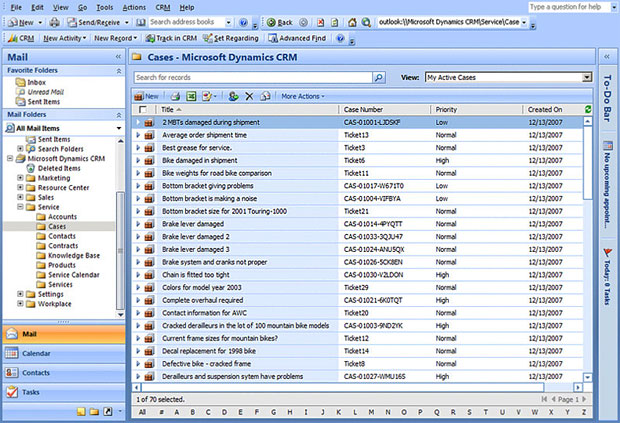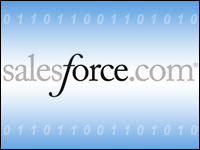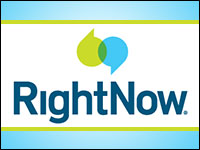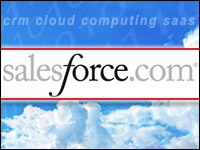
Microsoft Dynamics CRM provides customers with a complete customer service solution, including marketing, service automation and sales capabilities.
Microsoft currently offers Microsoft Dynamics CRM 4.0 as either an on-premise option or a partner-hosted version; Microsoft Dynamics CRM Online is a version that customers can subscribe to on a per-user, per-month basis directly through Microsoft.
The company also recently released the beta version of Microsoft Dynamics CRM 2011, the next-generation product for cloud-based and on-premises deployments.
“The next-generation launch — Microsoft Dynamics CRM 2011 — is set to amplify the power of productivity,” Bill Patterson, director of product management for Microsoft Dynamics CRM, told CRM Buyer.
Flexibility and Choice
“Microsoft Dynamics CRM provides case management, knowledge management, service scheduling, Web interaction portals, and service contract management capabilities for organizations of all sizes,” Patterson said.
The system offers a flexible development platform and interoperability with other Microsoft technologies, he noted, allowing Microsoft-certified professionals to continue to leverage their existing skill sets.
In addition, the flexible xRM application framework enables organizations to build extensions and new custom solutions for a fraction of custom development, Patterson continued.
“A key differentiator of Microsoft Dynamics CRM is that it offers customers a real choice in how they want to deploy their CRM solution,” he pointed out, noting that customers can easily change their deployment models rather than be locked into one particular model. “The way we’ve achieved this is by having a single-code base across all deployment models.”
Customers benefit from the solution’s familiar native Microsoft Office environment, which offers a quick learning curve and rapid user adoption, Patterson added.
Cloud computing allows customers to make changes to processes and workflows without significant programming investment, Rebecca Wettemann, vice president of research at Nucleus Research, told CRM Buyer.
It also enables companies to hire customer service people wherever they may be, and scale customer support resources up and down as needed, she added.
“Cloud computing is one of the trends that is happening,” observed Ray Wang, a principal analyst at Constellation Research Group.
The recession has helped spur the adoption of cloud-based services, because they save money and offer fast implementation, Wang told CRM Buyer. The cloud-based option allows Microsoft Dynamics CRM to serve a wide range of company sizes and industries.
“It’s designed to be more flexible,” he noted.
Usability and Intuitive Use
Usability, analytics capabilities, integration, dashboard functionality, and the ability to build company-specific workflows with xRM make Microsoft Dynamics CRM a good choice, Wettemann explained.
Microsoft Dynamics CRM customers can leverage these features to provide answers to customers more quickly, she said.
“A huge advantage of Dynamics CRM is its usability and intuitive use for anyone who’s worked in Microsoft Office and other applications,” Wettemann observed.

Besides its usability, one of Microsoft Dynamics’ strengths is its easy integration with other products — especially Microsoft products, said Constellation’s Wang.
Although Dynamics CRM could be very good for email campaigns, there might be some limitations when using it for marketing and marketing automation, he noted.
It will not necessarily provide extensive functionality in areas such as marketing, sales and analytics, said Wettemann.
“Dynamics CRM has traditionally been stronger in small and medium businesses, but Microsoft and its partners (such as Avanade) are gradually changing that story,” Wettemann said. “There are certainly applications that go deeper in terms of functionality in areas like marketing, sales enablement or deep customer analytics. However, they can often be more complex and costly to implement.”
If customers have unique needs that cannot be met by Dynamics CRM, the company can draw on its broad network of partners to easily fill that need, said Microsoft’s Patterson.
Competitively Priced
Microsoft Dynamics CRM Online is currently available for US$44 per user, per month, Patterson said. Last month at Convergence 2010 Europe, Microsoft announced a new global launch promotional pricing offer for Microsoft Dynamics CRM Online at a price of $34 per user, per month for the first 12 months of service.
This special global pricing offer will be available to new customers from the launch in January 2011 until June 30, 2011.
“Dynamics CRM is certainly competitively priced in the marketplace,” Wettemann pointed out.
CRM Is the Glue
When deciding to purchase or subscribe to Microsoft Dynamics CRM or any customer service tool, check the references of the vendor and any implementation partners, particularly from companies that are managing similar processes with the CRM tool, Nucleus Research’s Wettemann recommended.
Potential users should also consider initial and ongoing costs, training and usability factors, and whether the tool offers the flexibility to make changes over time, she added.
The software should be very user-friendly, Constellation’s Wang advised, noting that potential users should also look for helpful features such as role customization, tracking and dashboards.
Choosing the right CRM tool is a critical business decision, he maintained, because CRM software is the glue in a business enterprise.






















































